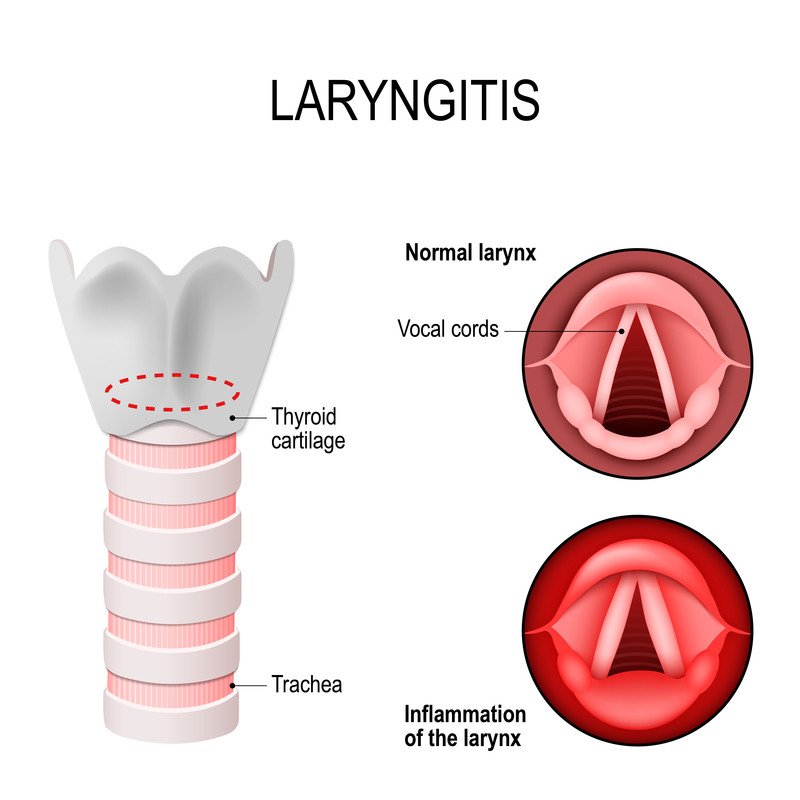Laryngitis
Medically reviewed by Drugs.com. Last updated on Jan 2, 2024.
What is Laryngitis?

Laryngitis is an inflammation or infection of the voice box (larynx) and the vocal cords it contains. Laryngitis makes the vocal cords swell, changing the way they vibrate and the sound of the voice. Depending on the degree of swelling, the voice may become mildly hoarse, turn into a croak or whisper or even disappear temporarily.
|
|
Laryngitis often occurs along with a viral infection, such as a cold or flu. Hoarseness tends to appear later in the illness, after the sore throat, sneezing, coughing and other symptoms. Bacterial infections of the breathing tubes (bronchitis) or lung (pneumonia) also can infect the larynx and cause laryngitis. And laryngitis can occur when the vocal cords are inflamed by straining the voice, such as when yelling or singing very hard.
Symptoms
Symptoms of laryngitis include:
-
Hoarseness
-
Raw throat
-
The feeling that you need to clear your throat
Diagnosis
Doctors examine vocal cords using an instrument with a light and a mirror placed in the back of the throat, which allows the doctor to see the vocal cords reflected in the mirror. Another way to view the vocal cords is with a flexible fiberoptic scope. The doctor passes the scope through the nose into the back of the throat.
In either case, if the doctor suspects a bacterial infection, he or she may ask you to cough up some mucous (phlegm, sputum) and have it analyzed in a laboratory.
Expected Duration
Laryngitis usually clears up within a few days to a week.
Prevention
There is no way to prevent laryngitis caused by an infection. To prevent laryngitis caused by straining the voice, avoid shouting or singing for extended periods.
Treatment
Viral laryngitis normally does not require medical treatment. Gargle with warm saltwater or use throat lozenges to relieve the sore throat. Breathing in moisturized air may help. You can use a humidifier or shut yourself in the bathroom for a few minutes after letting the shower run on its hottest temperature.
To rest your vocal cords, talk as little as possible. Avoid whispering, too, because it strains the voice as much as normal speech. If your doctor determines that a bacterial infection is causing the laryngitis, he or she normally will prescribe antibiotics.
When To Call A Professional
If you have a persistent fever, difficulty breathing or a cough that produces colored phlegm or blood, contact your doctor. If hoarseness lasts for several weeks after a respiratory infection, or if hoarseness develops without any respiratory infection, check with your doctor to determine whether some other condition of the vocal cords, such as a tumor, may be causing the hoarseness.
Prognosis
Laryngitis caused by a virus or vocal strain usually will disappear in a few days to a week. If the laryngitis is caused by a bacterial infection, the outlook depends on the type of bacteria involved.
Additional Info
National Institutes of Health (NIH)
https://www.nih.gov/
Further information
Always consult your healthcare provider to ensure the information displayed on this page applies to your personal circumstances.

